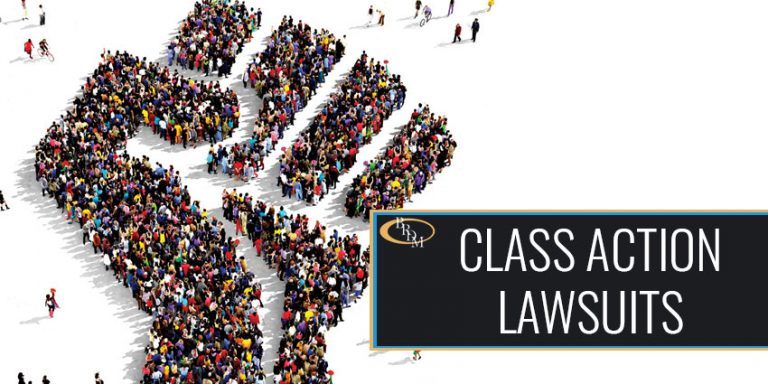Insights into the Future FinTech Class Action Lawsuit: Keep Informed
Insights into the Future FinTech Class Action Lawsuit: Keep Informed
Blog Article
Demystifying Course Activity Legal Actions: A Closer Check Out Legal Process
Class action suits can be intricate and intimidating, usually shrouded in a shroud of mystery for those strange with the lawful procedures entailed. From recognizing the criteria for class action qualification to the duty of course agents, and from the process of course certification to the resolution of these legal actions, we will decipher the complexities and lost light on the internal functions of this legal mechanism.
Recognizing Course Action Legal Actions
Recognizing Course Action Lawsuits requires an extensive assessment of the lawful proceedings associated with collective litigation. Course activity suits are a kind of lawsuit where a team of individuals with comparable claims or complaints join together to initiate a claim against a common accused. This form of lawsuits allows people with limited resources to jointly seek justice, as it integrates the strength of numerous individual cases right into a solitary lawful action.
The process begins with the identification of a lead plaintiff or course agent that files the first problem in support of the whole course. The court after that identifies whether the case satisfies the demands for course certification, that include commonality, numerosity, typicality, and adequacy of depiction. If licensed, the court notifies possible course members, providing them a chance to opt-out if they desire to pursue their claims individually.
As soon as the course is certified, the litigation continues via numerous phases, including exploration, activity technique, and, if essential, test. The result of the lawsuit can cause a settlement or a judgment, which is binding on all course members unless they select to opt-out. Class activity legal actions can encompass a vast array of legal problems, such as consumer security, safety and securities scams, employment discrimination, and environmental injury.
Understanding the subtleties of course action suits is critical for both accuseds and plaintiffs associated with collective lawsuits. It requires an extensive understanding of the lawful demands for accreditation, the civil liberties and responsibilities of course participants, and the possible benefits and dangers related to defending or seeking against course action insurance claims.
Identifying Course Action Eligibility
To establish whether a legal action certifies as a class action lawsuit, details criteria must be fulfilled. These standards are developed to guarantee that the case can appropriately represent the passions of a large team of people that have actually experienced comparable injury or have actually been impacted by the very same problem. The vital element in identifying course activity qualification is the visibility of a typical concern or issue that influences all possible class participants.
To start with, a course activity claim needs numerosity, which means there need to be a considerable number of prospective class members involved. This makes certain that a class action is a reliable means to deal with the insurance claims of a big team of people, instead of having everyone submit a specific claim.
Secondly, there have to be commonness amongst the cases of the prospective course participants. This indicates that there should be a typical question of regulation or fact that is main to the instance. If each potential class participant's insurance claim is unrelated and special to the others, a class activity might not be suitable.

The Duty of Course Representatives
Course reps play an important function in class activity suits by representing the rate of interests of the whole course. These people are selected from within the course to work as the general public face of the suit and are responsible for choosing on part of all class participants. The role of class reps includes various duties and duties throughout the legal process.
Among the key obligations of course reps is to give info and aid to their fellow class participants. They serve as a point of get in touch with and communication between the class members and the lawyers representing them. This includes maintaining the class participants notified about vital updates, addressing their concerns, and addressing any type of issues they might have.
Course agents additionally have the obligation to proactively take part in the litigation process (Assertio class action lawsuit). This entails functioning very closely with the lawyers to create lawful approaches, gathering evidence, and offering testimony if required. They must be proactively associated with all facets of the situation to make sure that the most effective passions of the entire class are stood for
Moreover, course reps are accountable for authorizing negotiations or other resolutions reached in the legal action. They need to thoroughly examine the terms of the negotiation and decide that is in the very best interest of the entire class. This decision-making procedure needs cautious factor to consider and assessment with the course members.
The Process of Course Qualification
The process of accrediting a class in a class action legal action entails a complete assessment of specific criteria to establish if the case fulfills the necessary demands for course accreditation. Class accreditation is an essential action in the litigation procedure as it determines whether a lawsuit can continue as a class action, enabling a big group of people with similar cases to be stood for jointly by one or a few individuals.
To obtain class accreditation, the plaintiff needs to demonstrate that the proposed class satisfies particular requirements. Typicality requires that the insurance claims or defenses of the course representatives are common of those of the course. Adequacy of representation ensures that the class reps will rather and adequately safeguard the rate of interests of the class.
If the recommended course meets the required demands,The court will certainly scrutinize these criteria and the complainant's evidence to identify. The court might also think about various other variables, such as whether a course activity is the exceptional method to resolve the dispute and whether the course is sufficiently cohesive.

When the court grants course certification, the claim can proceed as a class activity, enabling the plaintiffs to collectively look for relief and potentially receive a judgment or negotiation that benefits the whole class.
Handling Class Activity Lawsuits
Once class accreditation has BioVie class action lawsuit been given, the next action in settling a class action legal action is to browse the procedure of litigation or negotiation negotiations. Litigation describes the lawful procedures in court, where the complainant's attorney provides evidence and disagreements to support their insurance claims, and the accused's lawyer counters with their own proof and debates. This procedure can involve various stages, such as pretrial activities, exploration, and trial. During pretrial movements, both parties might file movements to disregard the case or slim down the issues in contention. Discovery allows each side to gather evidence and information from the various other event via techniques such as paper interrogatories, demands, and depositions. Ultimately, if the case proceeds to test, both parties present their situation before a court or court, who will after that determine the outcome.
On the various other hand, settlement negotiations entail discussions in between the events to get to an equally acceptable resolution without going to trial. Future FinTech class action lawsuit. Negotiation provides might be made at any type of phase of the lawsuits procedure, and if both parties concur, a negotiation agreement is reached. This arrangement generally outlines the terms and problems of the settlement, consisting of any financial settlement, injunctive alleviation, or various other remedies. When the negotiation is completed, it exists to the court for approval.
Verdict
In final thought, class action lawsuits play an essential function in offering justice and compensation to huge teams of individuals that have been hurt by the exact same entity. By designating and certifying a class class reps, the lawful process ends up being more effective and obtainable for the complainants. Dealing with these lawsuits can be a complicated and extensive procedure, however it is vital in holding companies liable for their activities and guaranteeing reasonable outcomes for all influenced celebrations.
From understanding the requirements for class action qualification to the duty of class representatives, and from the process of class certification to the resolution of these legal actions, we will unravel the details and lost light on the internal workings of this legal device. The vital variable in recognizing class action eligibility is the existence of an usual question or issue that affects all potential class participants.
If each potential course member's case is unique and unrelated to the others, a class activity may not be ideal.
Course agents play a crucial role in course activity lawsuits by representing the interests of the entire class.Once class qualification has actually been provided, the next step in solving a class action lawsuit is to navigate the procedure of lawsuits or negotiation negotiations.
Report this page